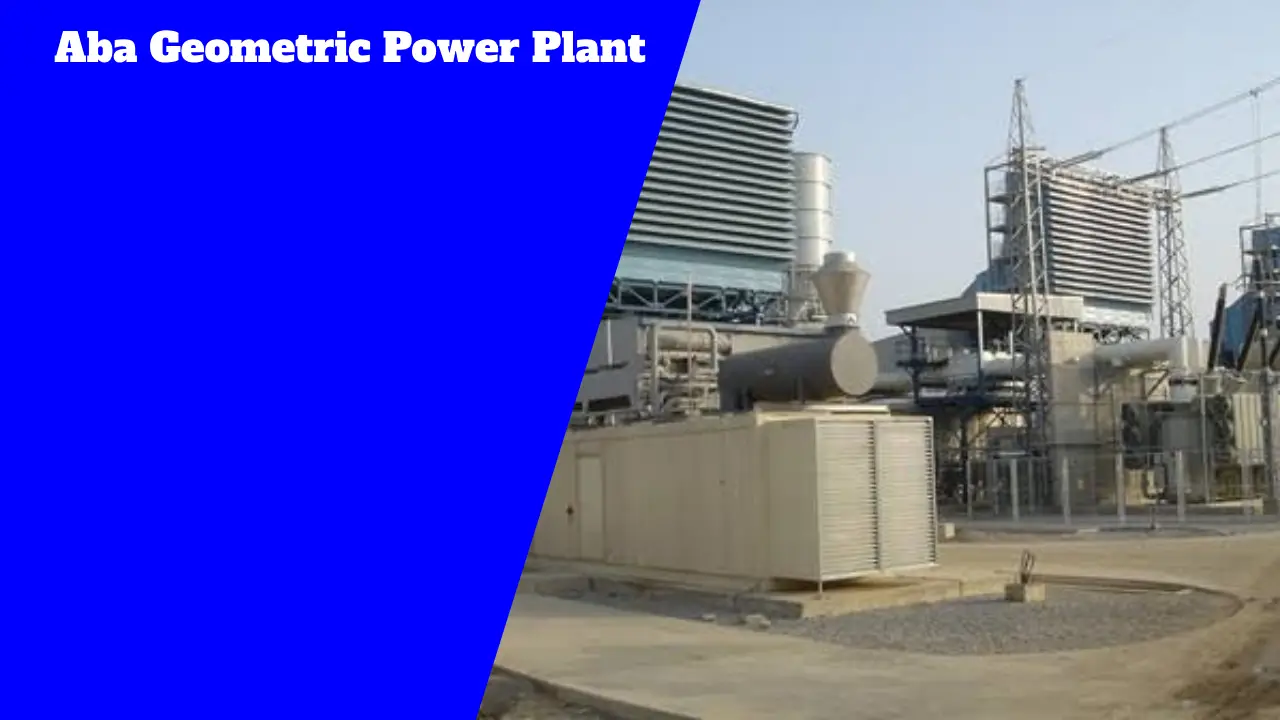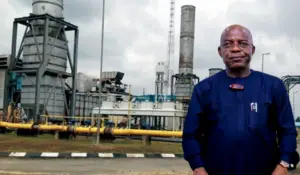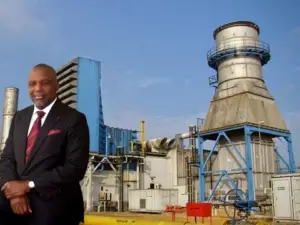Aba, the bustling commercial center of Abia State, is set to enjoy a 24-hour electricity supply as the Geometric Power Group, Nigeria’s first independent and integrated power utility, was inaugurated on Monday by Vice President Kashim Shettima on behalf of President Bola Tinubu.
The Geometric power plant, located at Osisioma Industrial Layout in Aba, is a 141-megawatt facility that will supply regular electricity to nine of the 17 local government areas in Abia State. It is powered by gas from the Owaza community in Ukwa West local government area, and it has four turbines with a total capacity of 188 megawatts.
The project, which has been in the works for over a decade, is the brainchild of Professor Barth Nnaji, a former Minister in charge of Power and the Chairman/Group Managing Director of Geometric Power Group. He said the project aimed to catalyze Aba’s development as an indigenous technology and manufacturing headquarters.
“Aba is known for its shoes, bags, leather products, paper products, beer and water bottling, wood works, metal fabrication, etc. With constant, quality, and affordable electricity, the cost of doing business in Abia State will reduce significantly, impacting the national economy,” he said.
He added that the project received support from the African Export-Import Bank (Afreximbank) and the Abia State government, which provided land, security, and tax incentives.
The Abia State Governor, Alex Otti, who was present at the inauguration, expressed his delight after the project, saying it would boost the state’s revenue and create employment opportunities for the youths.
“This is a historic day for Abia State and Nigeria. We are proud to host the first independent power utility in the country, which will light up our homes and businesses and transform our economy and society. We thank President Tinubu, Vice President Shettima, Professor Nnaji, and all the stakeholders for making this dream a reality,” he said.
The Vice President, who represented the President, commended the Geometric Power Group for its vision and innovation, saying it was in line with the federal government’s policy of encouraging private sector participation in the power sector.
He said the federal government was committed to providing an enabling environment for investors in the power sector and urged other states and regions to emulate the Abia example.
He also assured the people of Aba and Abia State that the federal government’s support in ensuring the efficient functioning and upkeep of the power plant is essential.
“The Geometric power plant is a landmark achievement for Nigeria and a testament to the resilience and creativity of the Nigerian people. It is also a demonstration of the federal government’s resolve to improve the power situation in the country and foster economic growth and development. We congratulate the people of Aba and Abia State for this historic occasion, and we pledge our continued support and collaboration,” he said.
The inauguration ceremony was attended by dignitaries from within and outside the state, including traditional rulers, religious leaders, business owners, civil society groups, and the media.
The significance of Geometric Power Plant in Aba Abia State
The Geometric power plant is the first of its kind in Nigeria, as it operates as an independent and integrated power utility, meaning that it generates, transmits, and distributes electricity to its customers without relying on the national grid.
The project was conceived by Professor Nnaji in 2004, after he visited Aba with the then World Bank President James Wolfensohn and the then Finance Minister Ngozi Okonjo-Iweala, and discovered that the biggest challenge facing the industrialists in Aba was erratic power supply.
He decided to invest in the power sector and obtained a license from the federal government to build an independent power project for Aba and its environs. He also secured a concession agreement with the federal government to ring-fence Aba from the national grid and create a dedicated distribution network for the city.
However, the project faced some legal and contractual challenges, as the Enugu Electricity Distribution Company (EEDC), which was privatized in 2013 and acquired by Interstate Electric Limited, claimed that it had the exclusive right to distribute electricity in Abia State and other parts of the South East.
This led to a protracted dispute that stalled the completion and operation of the Geometric power plant for several years until the intervention of the Abia State government under Governor Otti, who brokered a peace deal between Geometric and EEDC in 2022.
According to the deal, Geometric was granted the right to distribute electricity to Aba and its environs. At the same time, EEDC retained the right to distribute electricity to the rest of Abia State and other parts of the South East.
The deal also involved the payment of $26 million by Geometric to EEDC as compensation for the loss of its distribution assets in Aba and the payment of $50 million by Afreximbank to Geometric as a loan to complete the project.
With the resolution of the dispute, Geometric could resume work on the project and complete it in 2024 after conducting several tests and trials.
The project is expected to significantly impact the economy and society of Aba and Abia State, as it provides electricity that is both reliable and affordable to over 300,000 customers, including small, medium, and large enterprises and residential and commercial users.
The project will also create thousands of direct and indirect jobs and stimulate the growth of local industries and businesses, especially those involved in leather, textile, metal, paper, and other products.
The project aims to diminish reliance on fossil fuels and generators, which are costly, noisy, and polluting, and contribute to environmental sustainability and climate change mitigation.
The project will also serve as an exemplar and inspiration for other states and regions in Nigeria and other African nations, which are set to make significant investments in the power sector and harness the potential of renewable energy sources, such as gas, solar, wind, and hydro.
The project will also enhance the security and stability of the power supply in the country, as it will reduce the pressure and congestion on the national grid, which is prone to frequent failures and collapses.
The undertaking will enhance the standard of living and well-being of the people of Aba and Abia State, as they will enjoy uninterrupted access to electricity, which is essential for education, health, communication, entertainment, and other social services.



